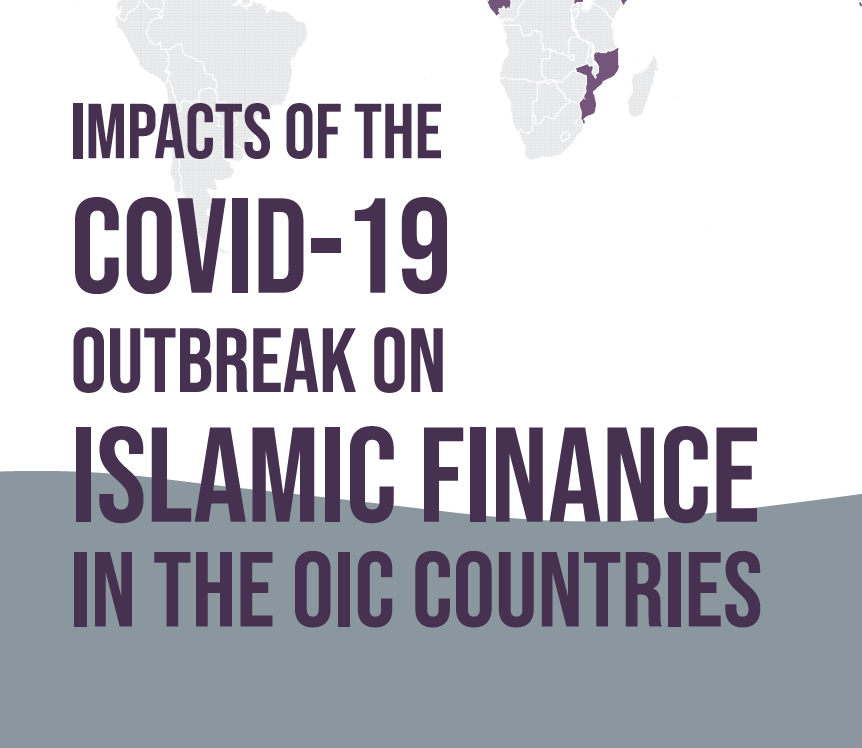Impacts of the COVID-19 outbreak on Islamic finance in the OIC countries
Description
This compilation, published by Indonesia's National Committee for Islamic Economy & Finance (KNEKS) and supported by DinarStandard and Salaam Gateway, looks at the impact of the COVID-19 crisis on the Islamic finance industries in 12 Muslim-majority countries that collectively hold 87% of the world's Shariah-compliant financial assets. The 12 countries assessed are (in alphabetical order): Bahrain, Bangladesh, Brunei, Indonesia, Iran, Malaysia, Nigeria, Oman, Pakistan, Saudi Arabia, Turkey, and UAE. The period reviewed is January 2020 to the end of April 2020.
Executive Summary
The financial and economic fallouts from the COVID-19 crisis is still being calculated and the true impact of the pandemic is still uncertain as we face the fifth month of its outbreak in May 2020. Where the global financial crisis of 2008/9 started off within the financial sectors and then trickled down to the "real economy", the impact of the novel coronavirus immediately hit almost all industries either directly or indirectly. The first reported case of the COVID-19 was in China on December 31, 2019, and the first incidence of it in the countries of the Organisation of Islamic Cooperation (OIC) was in Malaysia on January 25, 2020. Since then, most economies, including OIC states, have imposed lockdowns that have halted production, impacted employment levels and livelihoods. Governments scrambled to inject financial stimulus packages to keep their economies afloat. How have all of these impacted OIC countries and their Islamic financial institutions? The situation varies from country to country as fundamentals differ.
